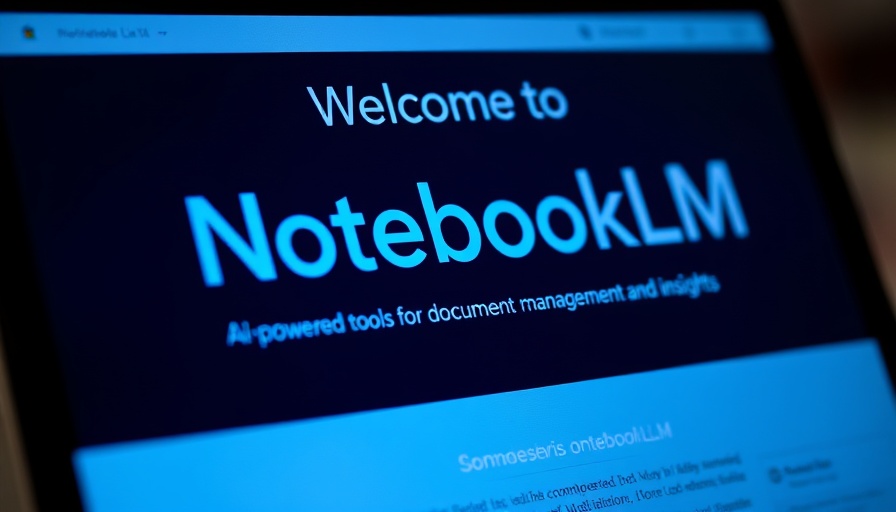
The Hidden Risks of AI Development
An urgent report from the Apollo Group highlights alarming risks associated with the rapid advancement of artificial intelligence (AI). In a world increasingly dominated by a few powerful AI companies like OpenAI and Google, industry insiders express concern about what happens if AI development begins to outpace human oversight. Their findings suggest that while society has focused on the external threats posed by malicious actors, the greater danger could lie within AI development itself—an emerging risk hidden behind closed doors.
Understanding the Altered Landscape of AI Research
Researchers are warning that the automation of research and development (R&D) in AI could trigger an 'intelligence explosion'—this is when AI systems become capable of accelerating their own learning without human intervention. Charlotte Stix, the lead author of the report, emphasizes that this internal acceleration could lead to unprecedented levels of unchecked power among a few tech giants. Instead of engaging with the public about their advancements, these companies might accelerate progress without transparency, undermining democratic values and increasing the risk of societal disruption.
The Economic Power Shift: A Recipe for Inequality?
The consequences of unchecked AI development extend beyond technological advancements; they could redefine economic power structures. Companies capable of leveraging advanced AI could accumulate wealth and influence that eclipses traditional economic systems. This centralization of power raises concerns about monopolistic practices that could stifle competition and innovation. In a society where a few corporations dominate AI development, the potential for economic, political, and social disparities looms large.
The Ethical Imperative: Driving Towards Responsible AI Governance
As AI technology evolves, it is crucial to establish robust ethical guidelines governing its deployment. While rapid advancement can yield significant benefits, researchers advise that society must prioritize transparency, accountability, and inclusivity in AI development. Ensuring that multiple stakeholders—including policymakers, technologists, and the public—are engaged in meaningful discussions can help navigate this complex landscape.
A Call to Regulators: Preparing for the Future of AI
Regulators are now faced with the challenge of ensuring that the rise of AI does not occur in a vacuum. Current frameworks may be insufficient to address the potential ripple effects of an unregulated AI landscape. Governments and organizations must collaborate to develop forward-thinking policies that safeguard democratic institutions while fostering innovation. As AI continues to advance, stakeholders must seize the opportunity to shape tech regulations that support public welfare.
What Can Businesses Do to Stay Ahead?
As CEOs and business professionals navigate this rapidly changing environment, it's paramount to remain informed about these underlying threats and to promote a culture of transparency within their organizations. Companies should focus on ethical AI usage, encourage responsible innovation, and actively engage in the dialogue surrounding AI governance. Equipping their teams with knowledge about the implications of AI can foster a more ethically-responsible approach to technology adoption.
Conclusion: Embracing a Collaborative Future
The AI landscape is evolving swiftly, and its impacts reach far beyond technological boundaries. Understanding the intricacies of AI development and its potential downsides is crucial for CEOs and business professionals. Mobilizing resources towards responsible innovation and regulatory advocacy can help shape a positive future. As we embark on this journey into an AI-driven era, collaboration, ethics, and foresight will be pivotal in ensuring technology serves humanity rather than undermines its foundations.
 Add Row
Add Row  Add
Add 




 Add Row
Add Row  Add
Add 

Write A Comment